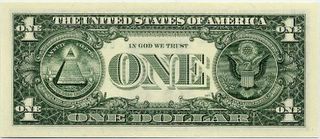
Petrodollars, for those that don’t know, is money paid to countries that produce oil (particularly countries in the Middle East), money which is then deposited back in US banks.
This dollar based global oil trade now gives the United States ‘carte blanche’ to print dollars without sparking inflation.

The single currency used by these exchanges is US dollars, meaning that if you want to buy oil, you need to first obtain some US currency.
When constantly trading for oil, you therefore need to stockpile dollars in order to satisfy the future demand for oil. Countries that export the oil similarly have huge reserves of dollars from the oil they have sold. These US dollars are then stored in US banks and effectively invested back into the US economy.
Imagine this analogy of a farmer wanting to purchase some pigs for his farm… He must first go to the market in order to purchase them.
The market dealers will only agree to sell him pigs for US dollars, but because the farmers local currency is not US dollars, he needs to acquire them from the US first.
However the US, are not interested in his local currency either, as its of little use to them, but they are interested in the corn the farmer produces. The farmer is then faced with the decision to trade his corn with the US, or borrow from the US and pay additional interest on the loan.
After acquiring the correct currency, the farmer then hurries off to the market to buy his pigs, and stock piles more US dollars for future purchases. The market in-turn then takes the farmers dollars and deposits them back into US banks.

Due to this vested interest in the security of the US economy, countries are effectively blackmailed into paying for US economic stress. After all, if the US economy plummets, then your stockpile of US dollars is going to be worth far less.
This zero currency risk investment, allows the US to carry on printing and lending money, whilst at the same time pouring billions into military spending, funding tax cuts, and allowing consumer spending on imports, without fear of inflation, or that these loans will ever be called in.
---
Gross Domestic Product (GDP), is the total value of goods and services produced within a country over a single year. It can be used to gauge a countries standard of living.Central bankers around the world do not expect either the US dollar or the US stock markets to sustain the levels they are currently at.
William Greider in ‘The Nation’ 23/09/02 pointed out:
"US economy's net foreign indebtedness--the accumulation of two decades of running larger and larger trade deficits--will reach nearly 25 percent of US GDP this year, or roughly $2.5 trillion. Fifteen years ago, it was zero. Before America's net balance of foreign assets turned negative, in 1988, the United States was a creditor nation itself, investing and lending vast capital to others, always more than it borrowed. Now the trend line looks most alarming. If the deficits persist around the current level of $400 billion a year or grow larger, the total US indebtedness should reach $3.5 trillion in three years or so. Within a decade, it would total 50 percent of GDP."These growing trade deficits set to rapidly unhinge the US financial position. By trying to run the world, they have heavily mortgaged themselves, and like anyone who borrows more than they can afford, and with no means to stop. The US economy is effectively a ticking time bomb, heaping further dependency on its creditors.
Currently the majority of these creditors (Private investors and Asian and European governments) are not inclined to tip the scales, and disrupt the balance with the worlds most powerful country. It is in their best interests to give their exports access to the colossal market of the US, and gain greater strength in the market share.
But with sufficient encouragement, these creditors will eventually tip the scales on the US. This is likely to happen either because the American debt burden has become so great that additional lending would be too risky or because the creditors want to stir trouble for the US.
This threatened to happened in September 2000 when Saddam Hussein announced that Iraq was going to reject dollars as the main currency exchange for oil, and use euros instead.
Fortunately for the US, under the disguised attack to seize "weapons of mass destruction" (weapons which were never found), Saddam’s plan was thwarted.
The Financial Times published an article in June 2003, confirming that Iraqi oil was once again safely returning to the international market, using US dollars not euros.

Iran are also now proposing to do what Saddam did, and go one step further, by creating their own Oil Exchange Market, which trades in euros instead of US dollars. This proposition will create a solid standing in the international trade for oil, which could have devastating repercussions on the US economy, especially if other countries follow suit.
Recent news reports indicate the Iranian oil bourse will start trading on the 20th of March 2006, to coincide with the Iranian New Year.
It will be interesting to see if Iran are accused of heinous acts, and if this euro based oil exchange is allowed to continue. Even more interestingly, if the US is forced to wage war with Iran in order to avoid an economic collapse, what disguise will they use to hide the truth this time?
Produced By:
Alex Chapman
Lance Challenor
No comments:
Post a Comment